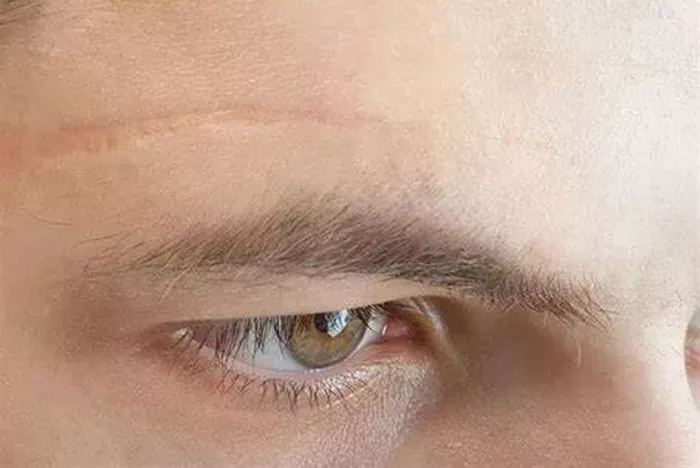Scars are a natural outcome of the skin’s healing process, occurring whenever multiple layers of skin are damaged. While the body works diligently to repair these wounds, various internal and external factors can slow down this process, leading to prolonged healing or more prominent scarring. This article will delve into the myriad factors that can impede scar healing, providing insights from medical research and expert opinions.
The Nature of Scar Formation
To understand what slows scar healing, it’s important to first grasp how scars form. When the skin is wounded, the body launches a complex healing process that occurs in three phases: inflammation, proliferation, and maturation. Initially, the body works to prevent blood loss and ward off infection. Following this, it starts rebuilding tissue. Finally, the scar tissue forms and strengthens over time. This process can last anywhere from several months to years, depending on various influencing factors.
Genetic Factors and Individual Health Conditions
Genetic Disposition: Genetics play a crucial role in how our bodies respond to injuries, including how we scar. Some individuals may be genetically predisposed to hypertrophic scars or keloids, which are thick, raised scars that grow beyond the bounds of the original wound.
Chronic Diseases: Conditions like diabetes or vascular diseases can impede blood flow, particularly to extremities, which reduces the oxygen and nutrient supply essential for wound healing. Additionally, autoimmune diseases like lupus can interfere with the body’s natural healing processes.
The Impact of Infection on Wound Healing
Infections are a primary culprit in delayed wound healing. When a wound becomes infected, it prolongs the inflammatory phase, causing the body to spend more energy fighting off infection rather than repairing the skin. Symptoms of an infected wound include redness, swelling, warmth, pain, and sometimes pus. Preventing infection through proper wound care and hygiene is crucial for optimal healing.
Nutritional Deficiencies
Role of Nutrition in Skin Health: Nutrition significantly impacts skin health and its ability to heal. Deficiencies in vitamins A and C, zinc, and protein can notably slow the healing process. Vitamin C, for instance, is essential for collagen formation, while protein deficiencies can reduce the synthesis of new tissue.
Impact of Hydration: Dehydration can also affect scar healing. Water is essential for all cellular functions, including those involved in wound healing. Adequate hydration ensures that nutrients are efficiently transported to the wound site, and waste products are removed.
Environmental Factors Affecting Scar Healing
Exposure to Sunlight: UV rays can cause further damage to healing skin and may lead to hyperpigmentation or discoloration of the scar. Protecting scars from sunlight with clothing or high-SPF sunscreens is advised.
Humidity and Temperature: Extreme temperatures and low humidity levels can dry out the wound area, impeding the healing process. Keeping the wound moist but not wet is often recommended in wound care protocols.
The Role of Medications and Substances
Certain Medications: Some medications, such as corticosteroids and certain chemotherapy drugs, can interfere with the body’s ability to heal wounds. These medications can weaken the immune system or interfere with the production of proteins needed for skin repair.
Smoking and Alcohol Consumption: Nicotine constricts blood vessels, which reduces blood flow to the skin and can severely slow down healing. Similarly, excessive alcohol consumption can impair the body’s immune response, increasing the risk of infection and prolonging the healing process.
Psychological Stress and Healing
Stress releases cortisol, which can weaken the immune system and delay wound healing. Managing stress through techniques like meditation, adequate sleep, and proper diet can thus indirectly improve healing.
Mechanical Stress on the Wound
Physical forces on the wound site, such as stretching, pulling, or constant movement, can disrupt the formation of new tissues and widen the scar. It is essential to minimize stress on the wound, especially during the early stages of healing.
Age-Related Factors
As we age, our skin’s natural ability to regenerate diminishes due to reduced collagen production and slower cellular turnover. Elderly individuals may therefore experience slower healing rates and are more prone to complications.
Conclusion: Enhancing Scar Healing
Understanding and mitigating the factors that impede scar healing can significantly improve outcomes. Whether it’s through proper nutrition, avoiding harmful habits like smoking, or protecting the wound from environmental harms, each step plays a vital role in promoting efficient healing. Moreover, recognizing when to seek medical advice for non-healing wounds can prevent complications and ensure the best possible care. By addressing these various elements, individuals can better manage their healing processes and minimize the appearance of scars, leading to better health and improved quality of life.
[inline_related_posts title=”You Might Be Interested In” title_align=”left” style=”list” number=”6″ align=”none” ids=”8125,8117,8113″ by=”categories” orderby=”rand” order=”DESC” hide_thumb=”no” thumb_right=”no” views=”no” date=”yes” grid_columns=”2″ post_type=”” tax=””]
































